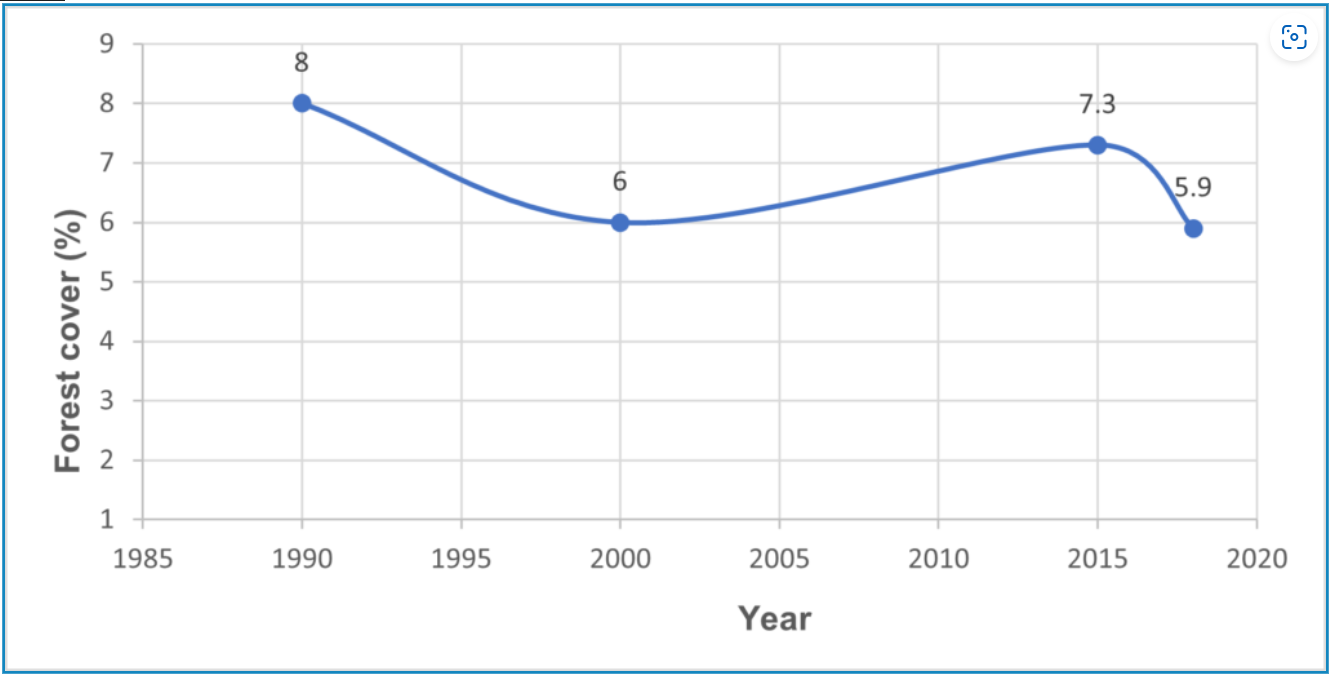The quest for good governance is, and as it were, from ancient times, the fulcrum of constitutional reforms. Countries south of the Sahara have witnessed various constitutional dispensations after the fall of colonialism. Three phases define the reforms hitherto; reforms at independence under the stewardship of the colonial power as a decolonization process and immediately after to abrogate the Westminster model that made the Queen of England a titular head of state of former British colonies, and the Gaullist constitutional 1958 French model adopted majorly by the French, Spain and Portuguese colonies in Africa; the post-independence amendments concentrating power in the presidency and ushering autocratic era characterized by human rights abuses; and lastly, the current phase which emanated from the wave of change calling for a system of governance anchored on democracy and the rule of law. The rallying call in all these epochs has been the genuine desire to have a framework of dealing with constitutional errors of the colonial past and the post-independence dictatorial and undemocratic regimes.
In Africa, the inherent argument has been that the existing constitutions neither enhance constitutionalism nor addresses the fundamental objective of keeping at bay the twin evils of anarchy and tyrannical elements associated with most constitutions. In South Africa, for example, the promulgation of the 1996 constitution brought an end to the repressive white minority rule, described as the masterpiece of post-conflict constitutional engineering, and rightly so, the constitution ushered in democracy with equal rights to all. Since a constitution is a living entity that addresses the ever-changing needs of the people, the South African constitution has witnessed 17 amendments. Currently, the call for amendment on expropriation of land without compensation is in high octave as it has inherently become a sign of inequality, largely in the hands of the minority white.
Imperatively, the logic of not leaving anyone behind is of essence in the constitutional change processes. The Charter of the African Union on the aspirations of the people in the quest for good governance and the rule of law emphasizes the same, and as Jean-Jacques Rousseau would posit, the people must have a right to choose the laws under which they are governed, the current call for constitutional amendments in Kenya is thus not unique but rather expected, since the independence constitution too underwent 23 amendments, just like the large democracies such as India that has witnessed 103 amendments hitherto.
Constitutional reform journey in Kenya
Like other African countries, Kenya’s constitutional journey dates as far back as1962 at Lancaster House. However, the major wave of constitutional reforms took place during the independence era, predominantly to transfer power from the colonial authority to elites who then transformed the constitutions and centralized powers through several phases. Constitutional amendments date back to 1952 driven by the demand for equal representation. This led to the Lyttleton and Lennox-Boyd constitution increasing African representation in the legislative council to fourteen from eight. This development necessitated the call for majority rule culminating in the independence constitution in 12 December 1963. In the new dispensation, new challenges emerged on the need to enhance equity and protection of the minority communities of the independent Kenya. A form of government espousing parliamentary system and devolution or “Majimbo” was devised in the Lancaster conference. This gave the federal governments exclusive powers to operate, and a complementarity role between the central government and federal governments with consultation on any decision made by the central government.
The independence constitution experienced several amendments which eroded the key governance provisions. Most of these amendments were never intended to enhance good governance; rather, they were political expediencies of the governments in place undertaken by one party dominated parliament, for instance in making general elections and its planning thereof a preserve of the ruling party. The first ever constitutional amendment was in 1964 when Kenya assumed a Republican status, creating the office of the president to replace that of the prime minister. In 1966, a second amendment birthed a unicameral legislature with the upper house and lower house. Devolution and/or majimbo was later abolished in 1968. Introduction of Section 2A making Kenya a de jure one-party state in 1982 would later be repealed in 1992 to introduce multiparty system and the introduction of Section 1A in 1997 allowing the president to incorporate members of other political parties in forming the government. Parliamentary nomination was transferred from the president to parliamentary parties.
The continued call for change of governance structure to address the underlying governance challenges, and the dilution of this popular will of the people as espoused in the Bomas draft of the proposed new constitution manifested itself in the 2008 post-election violence, which necessitated a further amendment, introducing the office of the Prime Minister .The culmination or what seemed to be an end to this long and elusive quest for good governance was 27th October 2010 when a new constitution was promulgated after a long-protracted reform process.
The Constitution 2010 brought a new system of governance. From the preamble, it upholds the aspiration of the people, their sovereignty and supremacy of the constitution as the foundation of nation building. As a departure from the past, the new constitution introduced a two-tier system of government, inclusiveness and equality, the national values and principle of governance, a whole chapter on leadership and integrity, democracy, rule of law and involvement of citizens in the governance process through public participation – all geared towards addressing past injustices, arbitrary executive powers, state capture of the electoral system, and monopolization of national resources.
Significantly, and unlike the independence constitution, an implementation framework was put in place by establishing the Constitutional Implementation Commission (CIC) – an independent body – and the Parliamentary Constitutional Implementation Oversight Committee to ensure full implementation. However, the CIC has since expired, but questions still linger as to whether Kenyans and those in charge have been faithful to ensure the attainment of the spirit of the constitution.
One of the gains in the new dispensation is devolution, which has faced operationalization challenges with delays in disbursement of funds from the exchequer to the County Governments, while some are not able to collect enough revenue to supplement. Supremacy battles between the Senate and the National Assembly have adversely affected quality of legislation at the county level. To address inclusivity and non-discrimination, the constitution provides for the two-third gender, which has not been realized so far. Whereas it is clear on how to actualize this rule in the County Assemblies under article 177(b), there is no mechanism of achieving the same in Parliament where out of 349 elected members, only 18% are female members, representing 65 members. Despite the court advisory on the same, lack of political will has hindered the attainment of the gender rule. Out of political expediency, the Leadership and Integrity chapter and national values are yet to be implemented fully.
It is more than nine years since the promulgation of the constitution, and therefore it may seem too early to think of amendment. However, the question should not be pegged on the timing but the philosophy behind calls for amendments because this is not alien to Kenya as it was witnessed with the independent constitution and other constitutions from various countries. It beseeches the question, is it politically motivated or a legitimate cause derived from citizen perspective? The factors being fronted by the different political leaders to support the current call for referendum is the issue of rising wage bill, land issues, electoral injustices, strengthening devolution and on top of the agenda is the issue of inclusivity and opening doors to a parliamentary system of governance, which has not been achieved so far.
Though the path is always expensive, convoluted and involving a process, countries have done so to address weaknesses in the governing system and at times unfortunately, out of political expediency by the powers that be. Uganda, for instance, has gone through four main constitutional epochs in 1962, 1967, 1995 and the latest in 2005 which removed the presidential term limit, and legalized multiparty political system. Ghana, which has been viewed as the Mecca of Africa’s democracy, has too experienced reforms since the 1957 independence constitution. The last promulgation was the 1993 Constitution for the Fourth Republic which embarked on amendments to democratize the election of mayors and to open the local government election to participation by all political parties. Constitution amendments, therefore, are not strange but rather need to be open, frank, all-inclusive and a consultative process.
Time and Way Forward for Kenya
Constitution amendments go through several processes and there are many drivers that act as impetus to these changes. Among the key drivers behind constitution amendments are competition among political parties, intermediate internal conflict, call for democratization, sectarian political participation and resource distribution, and knowledge or adoption of new model of world governance. In various phases of drafting and redrafting, political parties are imperative in the reform processes, and the success of generating reforms that reflects peoples’ ideals largely relies on the functioning of the political parties. Based on the above backdrop, the call for reform should address the adherence to rule of law and adoption of national values. Additionally, there is also need for changing institutional practices and arrangement in line with new governance systems.
In this analysis, what then is the way forward for Kenya? The rallying call to amend the constitution in Kenya is a healthy discourse that must be encouraged. The politics involved should not cast doubt on the process, because constitution making itself is a political process. However, the focus must remain on improving and enhancing an inclusive governance system. Devolution has seen inclusive development in all parts of the country. A review to strengthen it by adding more resources should be welcome. Further, any structural adjustment that would reduce the unhealthy supremacy battles between the Senate and tthe National Assembly will enhance operations in the counties and county assemblies, thereby making devolution more effective.
The one third gender rule is at the heart of the clarion call of leaving no one behind in the governance process. A review that will give impetus to the realization of this will see women who are marginally higher than men in terms of population take their pride of place in the governance process, and their voice equitably represented in the leadership positions and decision making. Lack of full implementation of the Leadership and Integrity chapter has continued to haunt the country after every electoral cycle since the promulgation of the 2010 Constitution. Therefore, any reform towards this is of essence, since the nexus between political instability and economic performance cannot be gainsaid.
Skeptics have argued that the constitution 2010 has not been fully implemented, which is true, but again it is worth noting that only 68.55 percent of Kenyans approved the 2010 constitution while 31.45 percent of the population voted against it; the more the reason for a review now that there is an opportunity to do so. However, since constitutional amendments should always be for the good course, these calls need to improve the governance structure with a focus on cementing the place of devolution, leadership and integrity and inclusivity in the governance system.
Authors: Yogo Kenneth and Wario Malicha, Young Professionals, Governance Department
Photo: Courtesy The Judiciary of Kenya





